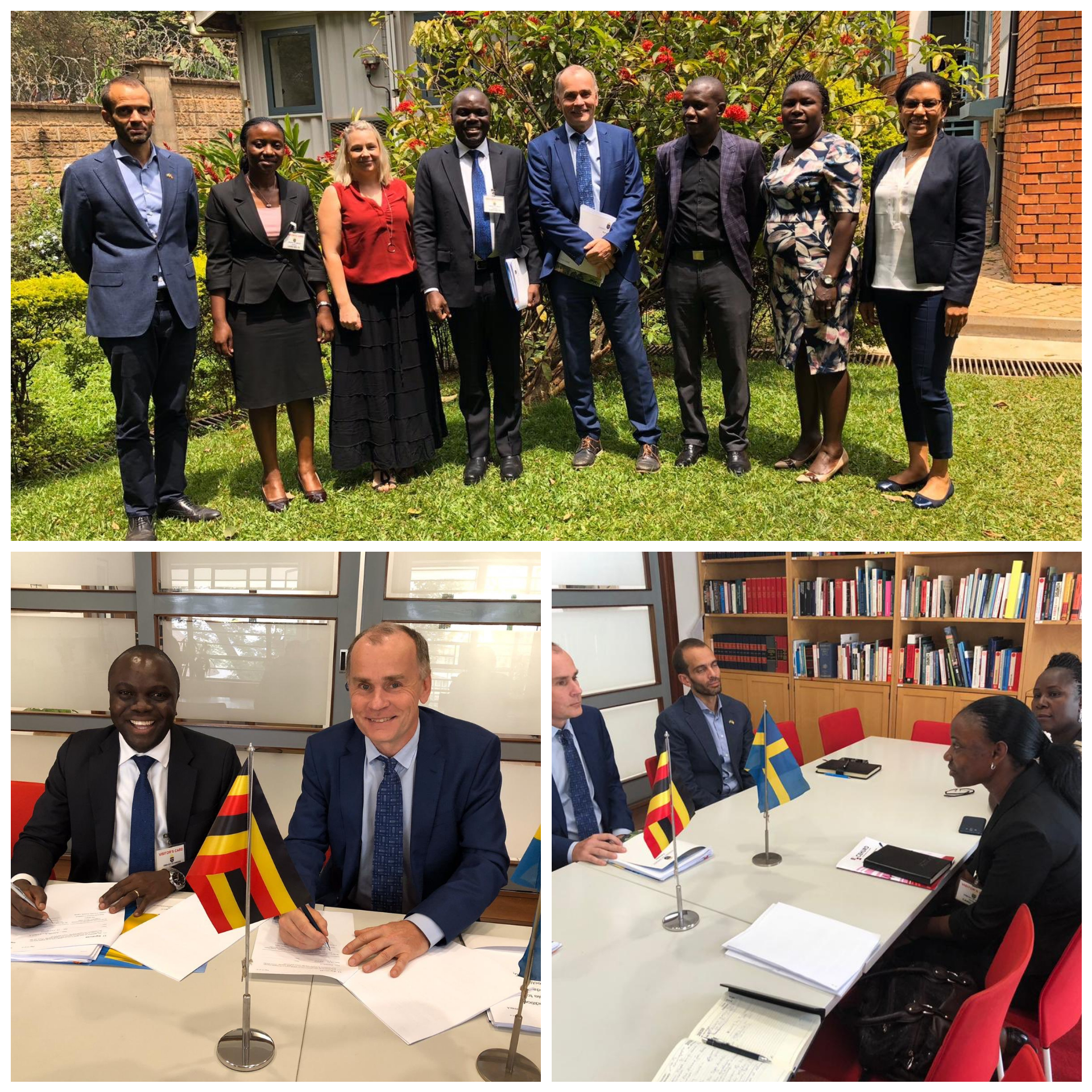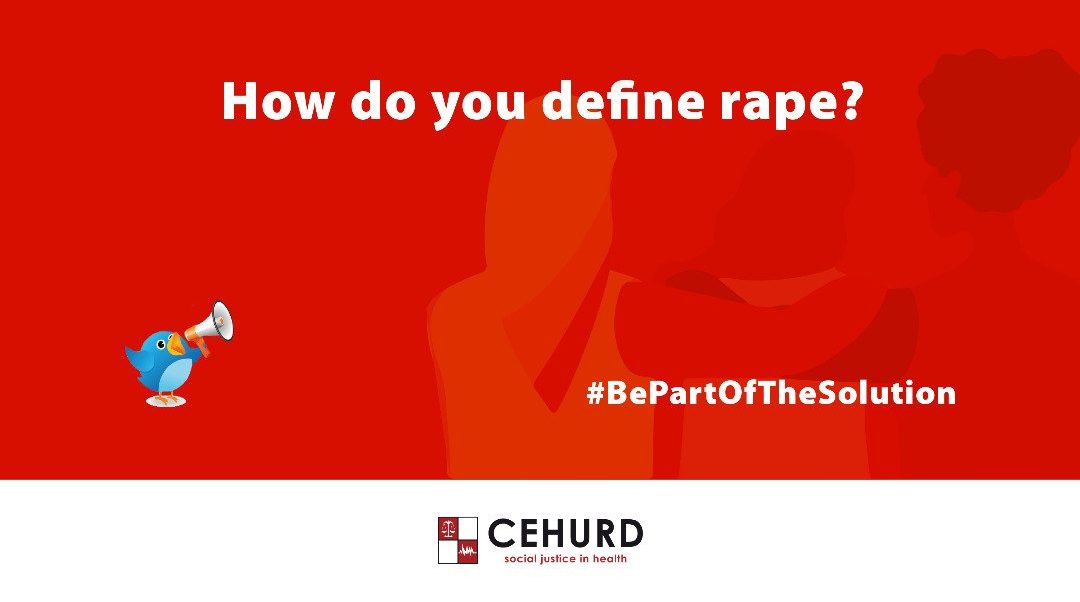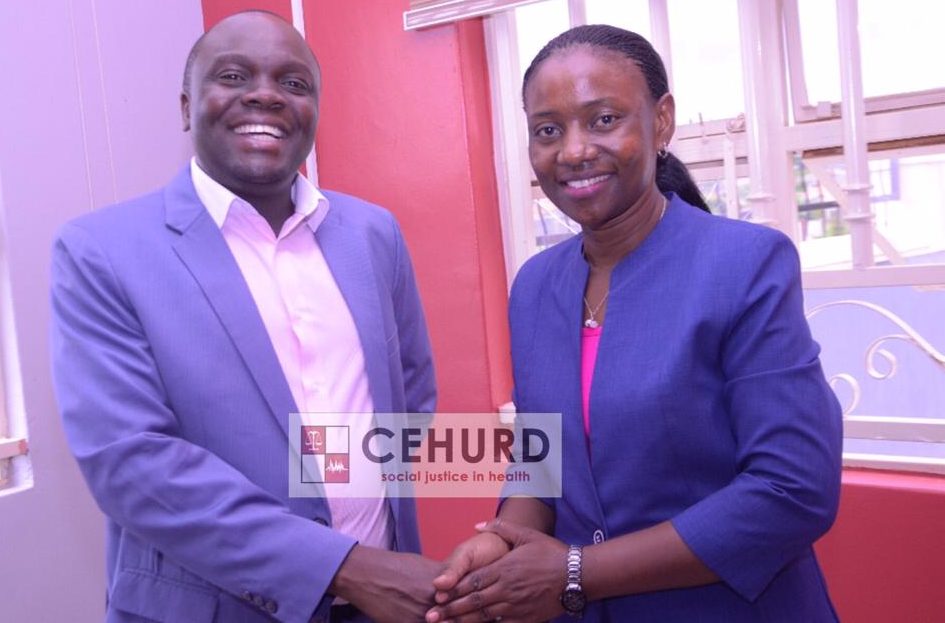Sexual violence is any
act which violates the autonomy and bodily integrity of women and children
under the international criminal law including but not limited to; rape, sexual
assault, grievous bodily harm, mutilation of female reproductive organs among
others. It can also be seen as a form of violence
against women (and men, who can also be sexually harassed) and as
discriminatory treatment.
Legal
definition of some types of sexual violence
- Rape: is defined as having unlawful sexual intercourse with a woman or girl, without her consent, or with her consent, if the consent is obtained by force or by means of threats or intimidation of any kind or by fear of bodily harm, or by means of false representations as to the nature of the act, or in the case of a married woman, by impersonating her husband, commits the felony termed rape.[1] Once a person is convicted the Punishment for Rape is death. Attempt to commit rape calls for a maximum sentence of life imprisonment. [2]
- Defilement: The Ugandan Penal Code Act was amended define defilement as having sexual intercourse with a person under 18 years of age. This means that the current law punishes the defilement of both girls and boys. Such person on conviction is liable to life imprisonment. The law provides for the offense of aggravated defilement, which makes one on conviction by the High Court liable to suffer death. The circumstances for aggravated defilement are:-
- Where the person defiled is below the age of 14 years
- Where the offender is infected with HIV
- Where the offender is a parent or guardian or a person in authority over, the victim
- Where the victim of the offence is a person with disability; or
- Where the offender is a serial one.
Under the law a person
charged with aggravated defilement is obliged to undergo a medical examination
as to determine their HIV status.
The law on defilement further provides for payment of compensation to victims of defilement in addition to any sentence imposed on the offender. It provides for the offense of child-to-child sex, where the offender is a child under 12 years; and when committed by a male child and a female child upon each other when each is not below 12 years, each of the offenders shall be dealt with as required by the Children Act.
Gravity of the sexual
violence state in Uganda
Sexual and gender-based violence offenses are the most common and prevalent offenses committed in Uganda. [3]Through 2005-2014, rape fluctuated substantially; it tended to decrease ending at 2.9 cases per 100,000 population.[i]
Worryingly, the Police
Crime report for 2015 indicates that at least 1,419 cases of rape were reported
countrywide. This rose to 1,572 in 2016, dropped to 1,335 in 2017, and rose to
1,580 cases in 2018.[ii]
1 in 3 women are
victims or survivors of sexual violence, 1 in 6 men are survivors/victims of
Rape and Assault.
The above statistics
are appalling and shocking, what aren’t we doing well? Has the law failed in
some way or it’s the community that is not doing enough?
Why the increase in sexual offenses in Uganda?
Clearly
it is not the absence of the Law that has caused failure to eliminate sexual
violence in our society because the different actors under the referral pathway
like police, Ministry of Health, Parliament, religious sector, the media,
Health and Human rights organizations like CEHURD are the leading institutions
in fighting this vice. But it is still an uphill climb,
Some of the possible reasons include;
- The
increased drug abuse among the young population
- The
delay in the Justice system for rape victims to get justice
- Victims
of rape, especially the corporate type, rarely report cases of rape to police
due to stigma
- Unemployment,
leading to criminal minds
- Media’s
constant display of explicit content leading to moral decay
Who is mostly at the risk of sexual
violence?
Women and girls experience sexual violence
at high rates while men/boys experience it at a low rate. Attacks can happen
from anywhere, by anyone at any time. Places like refugee camps,
homes, schools, offices, isolated spaces are some of the breeding grounds for
rape.
What next after rape?
It
is true that there is a gap or little knowledge on what the victims of rape are
supposed to do immediately after the unfortunate incident. The public needs to
know that comprehensive sexual assault services are available at all levels of
the public health care system, from local health centers and clinics to
national referral hospitals.
The
first step is to report the assault/ incident at the nearest police station.
After the complaint has been lodged at the Police Station and a statement
recorded, the victim is subjected to a medical examination to ascertain the
authenticity of the rape, assault and gravity of the incident to inform the
nature of the case and evidence to support the case. Before a victim lodges a compliant at a Police
Station and undergoes a medical examination, they are advised to avoid
activities that could potentially damage evidence such as bathing, showering,
using the restroom, changing clothes, combing hair, and cleaning up the area.
Rape survivors are most often in a
compromised and highly vulnerable position when they seek for help. Attendants ought
to recognize the vulnerability of these clients and ensure that treatment does
not cause further trauma or secondary victimization. The treatment should be
sensitively given, with confidentiality and informed consent.
Rape / sexual assault
victims are advised undergo Medical Examination. DNA evidence from the crime scene should
be collected from the crime scene, but it can also be collected from the body
of the victim, clothes, and other personal belongings. In most cases, DNA
evidence needs to be collected within 72 hours from the occurrence of the
incident.
Effects of The Rape Trauma
Rape and Sexual Assault cases may come
and go, but they leave grave, life-long
effects on victims., Their psychological health and physical well-being are
usually adversely affected; some of these effects include; sexually transmitted
infections (diseases), depression, low self-esteem, mental illness, suicidal
thoughts, insecurity, poor performance, isolation, pregnancy, post traumatic
disorder etc.
Way forward
- Having
more relevant and updated policies will ensure safety for all. As seen in Section 123 of the Penal code
Act of 1954, only girls and women are considered to be victims, but time has
shown that men and boys are also at risk.
- Justice
delayed is Justice denied, assailants should be brought to book as soon as
possible and uncalled for delays in the Justice system should be eliminated.
- Rehabilitation
centers for Rape and Sexual Assault victims should be publicized more to
support survivors emotionally and mentally
- Men
should be involved at ground level because they are extremely important in
breaking the rape culture.
- Government
should step up mobilization, sensitization and education. Follow up referral
pathways, investigate every single case reported quickly and effectively.
[1] Section 123 of the Penal code Act.
[2] Section 125 of the Penal Code Act,
[3] The presiding High Court Judge, Justice Gadenya Paul
Wolimbwa, much attention is drawn towards Sexual Gender Based Violence cases
such as defilement, rape and domestic violence, because they constitute 62
percent of the cases in the High Court of Uganda.[3]
[i] https://knoema.com/atlas/Uganda/Rape-rate
[ii] https://www.monitor.co.ug/Magazines/PeoplePower/Do-we-have-rape-crisis-country/689844-5415522-13yl07n/index.html
By Jacqueline Twemanye and Nakalembe Judith -CEHURD.





